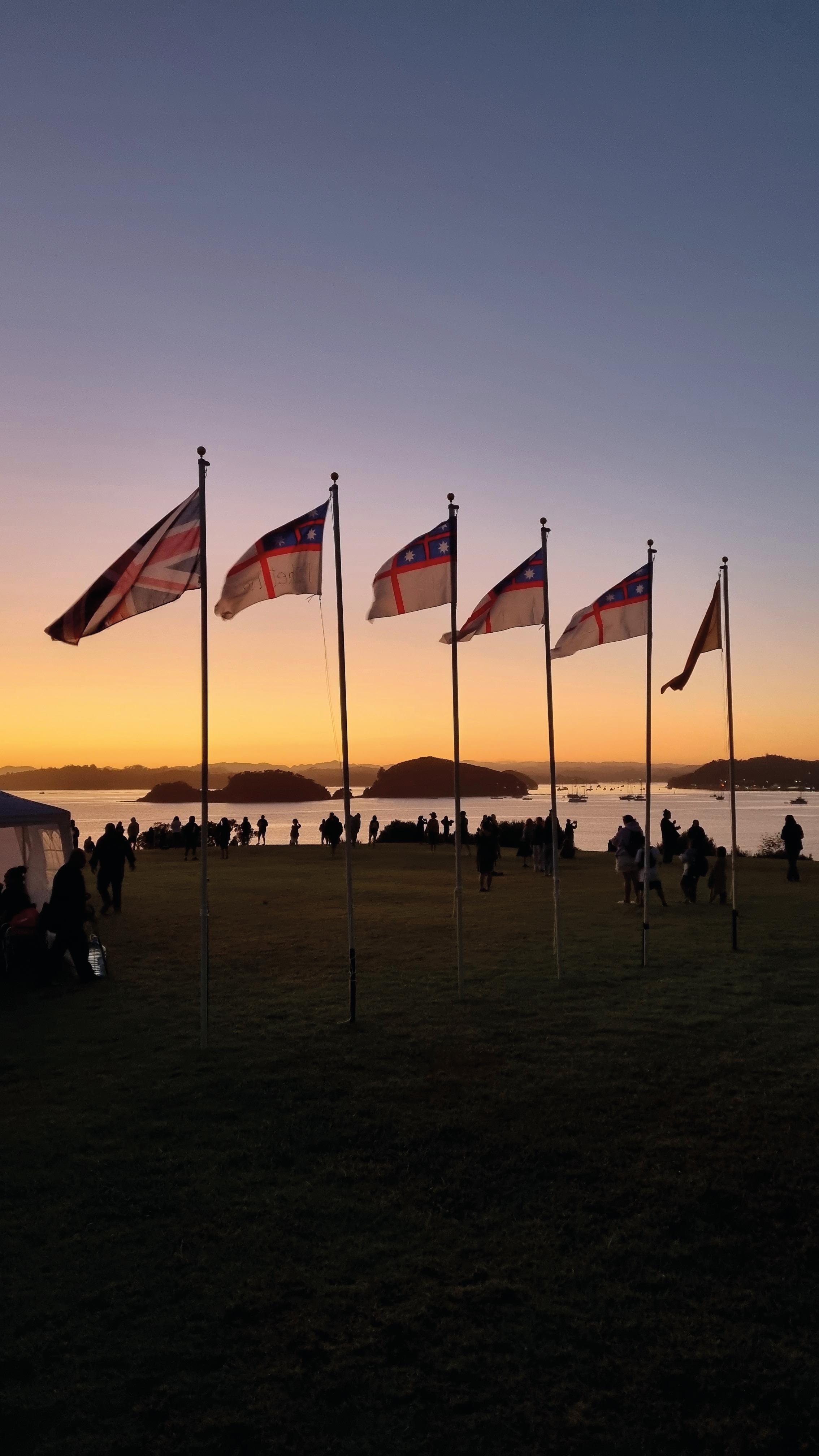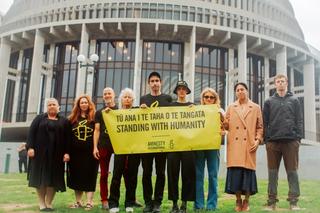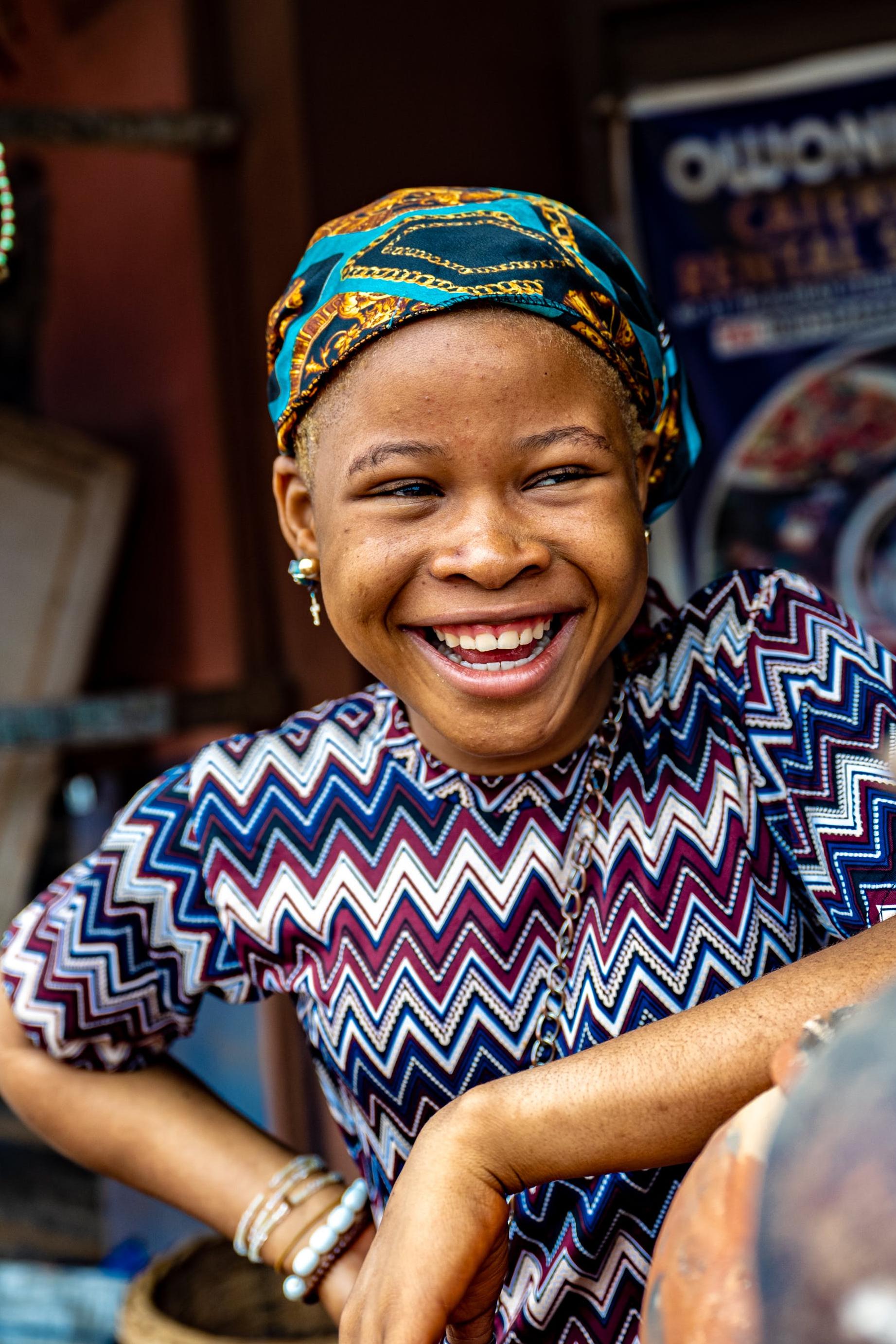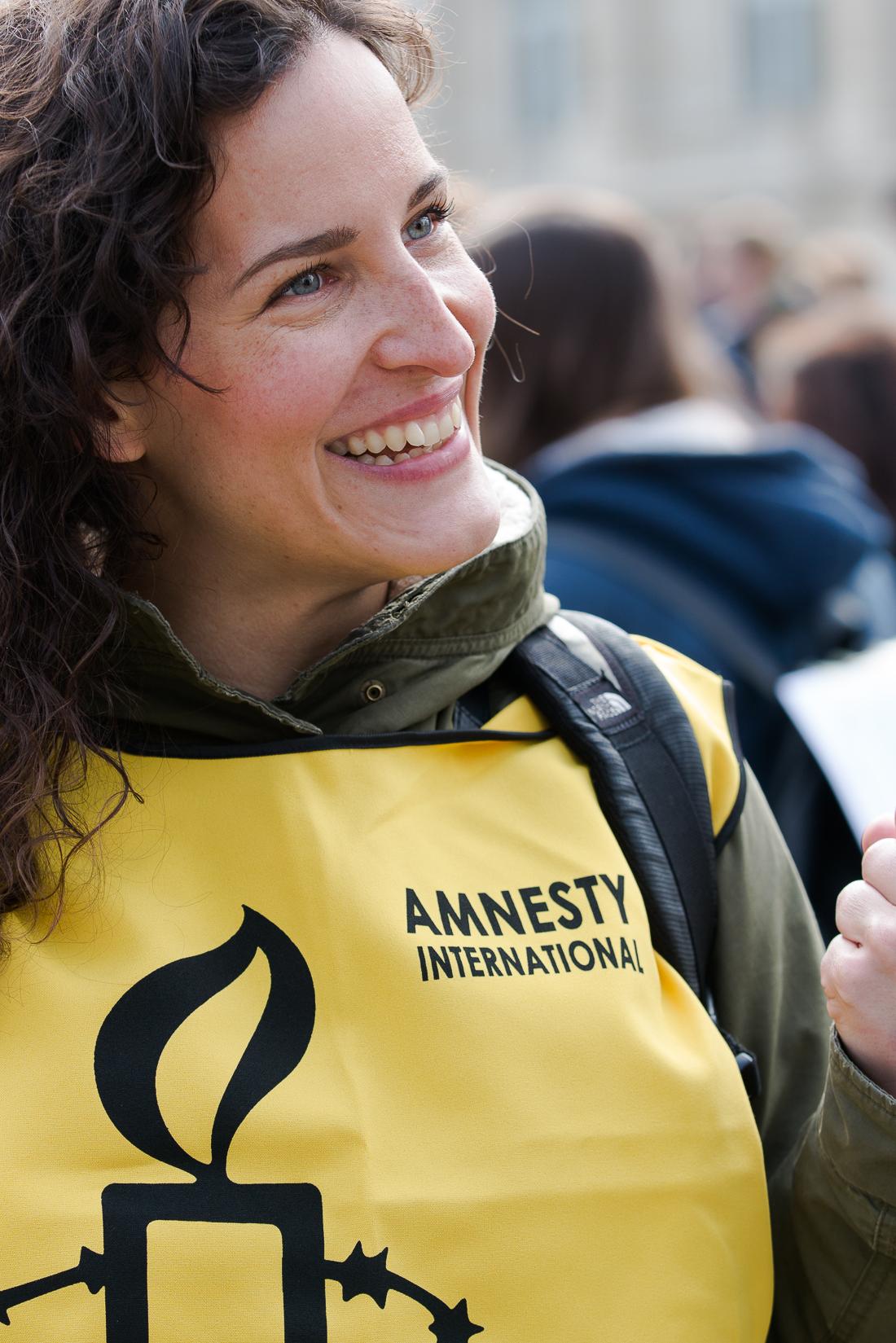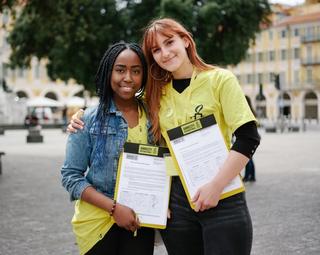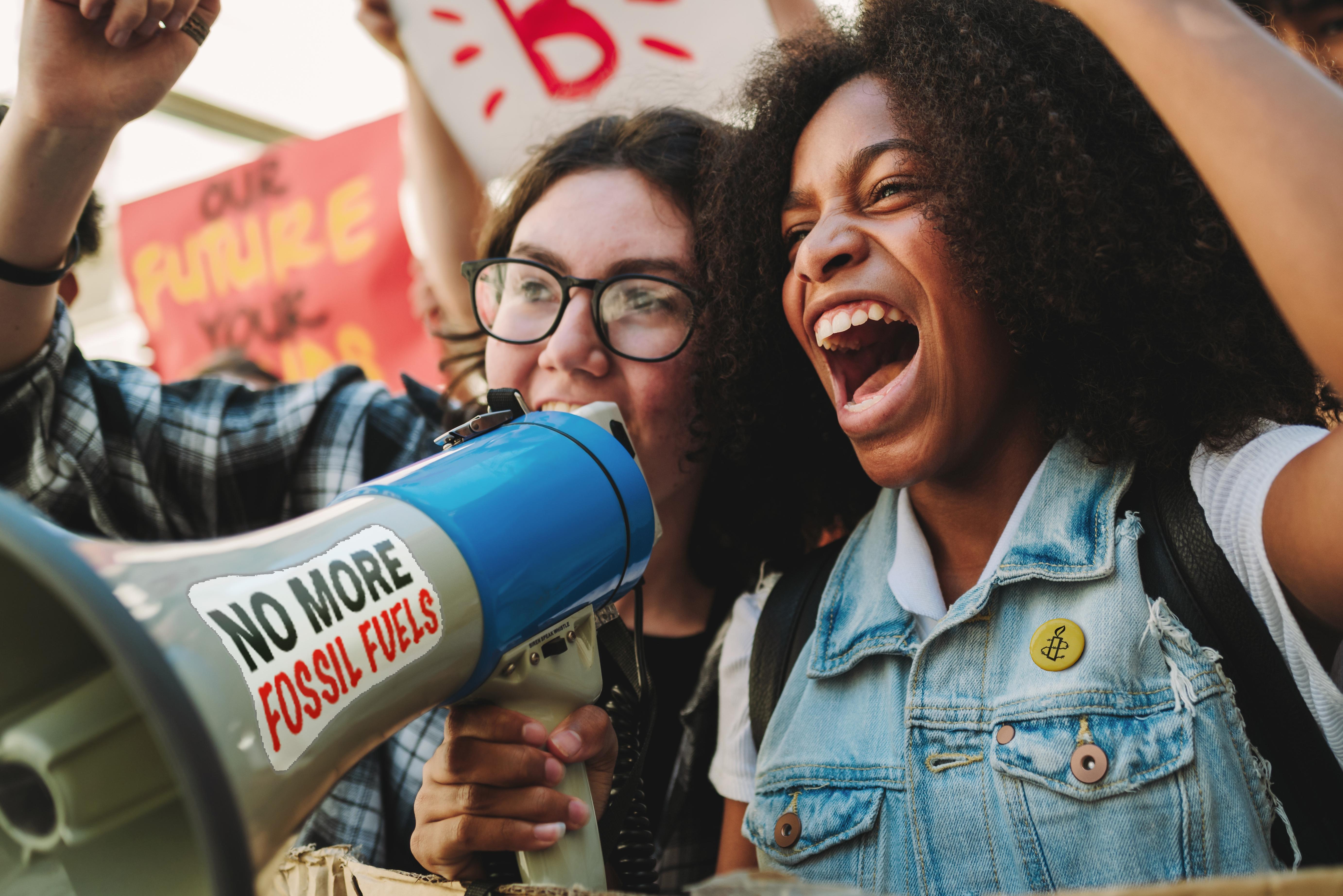
OUR KAUPAPA
Contribute to the global mission by fearlessly building movements for human rights change in Aotearoa New Zealand and beyond, particularly the Pacific.
OUR VISION
Our global vision is a world in which every person enjoys all of the human rights enshrined in the universal declaration of human rights and other international human rights instruments.
In pursuit of this vision, Amnesty International’s mission is to undertake research and action focussed on preventing and ending grave abuses of these right,
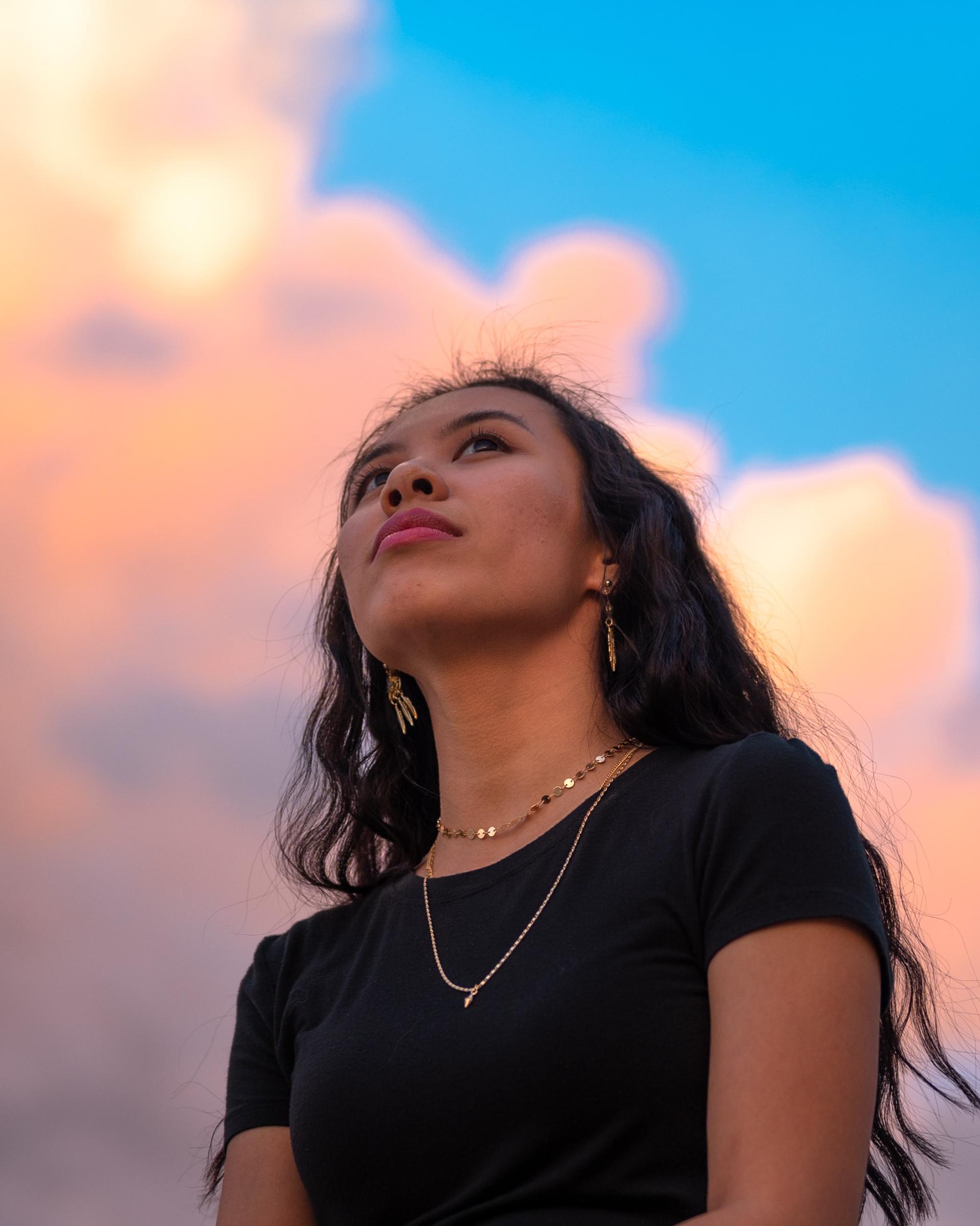
STRATEGY 2030
Over the next decade, Amnesty International must face the monumental task of safeguarding human rights from growing threats around the world.
Strategy 2030 identifies the areas of human rights that we will prioritise as a movement. In particular, it outlines where we can make the biggest difference both here in Aotearoa New Zealand and beyond.
Use the interactive tool below to explore our roadmap for the future or keep scrolling to learn more.

STARTING POINT
For all of our work in Aotearoa New Zealand, the starting point is He Whakaputanga o te Rangatiratanga o Nu Tireni (Declaration of Independence) and Te Tiriti o Waitangi, which uphold the sovereignty of Māori.
We recognise the horrific human rights violations and the deep and enduring harm caused by Aotearoa New Zealand’s colonial history. Many of the most significant human rights issues Aotearoa New Zealand is grappling with relate to the country’s colonial history – the dishonouring of Te Tiriti by the Crown and systemic racism and discrimination. Therefore, solutions must recognise the need to fully and properly recognise Te Tiriti and the tino rangatiratanga of Māori that Te Tiriti upholds. This mahi is fundamental to building an Aotearoa New Zealand that fully realises human rights for all.
WE WILL DELIVER IMPACT THROUGH FOUR PILLARS:
Advocate for structural change
We set the agenda for change and hold decision makers, institutions and corporations to account for their role in protecting human rights
Amplify collective voices
We mobilise people and champion the work of others to support positive human rights change
Advance evidence-based information
We leverage our global movement and enable local capability to maximise the use of evidence-based information.
Ally to address systemic discrimination
We partner with Indigenous communities and others with lived experiences to address systemic racism and other forms of discrimination
TO DO THIS WELL, WE WILL STRENGTHEN FOUR WAYS OF WORKING:
Uphold Te Tiriti o Waitangi
Live our values
by being anti-racist and holding equity, diversity and inclusion at our core
Operate beyond financial sustainability
by optimising and diversifying our revenue to achieve greater impact
Build for the future
by developing effective and innovative systems and tools that deliver impact
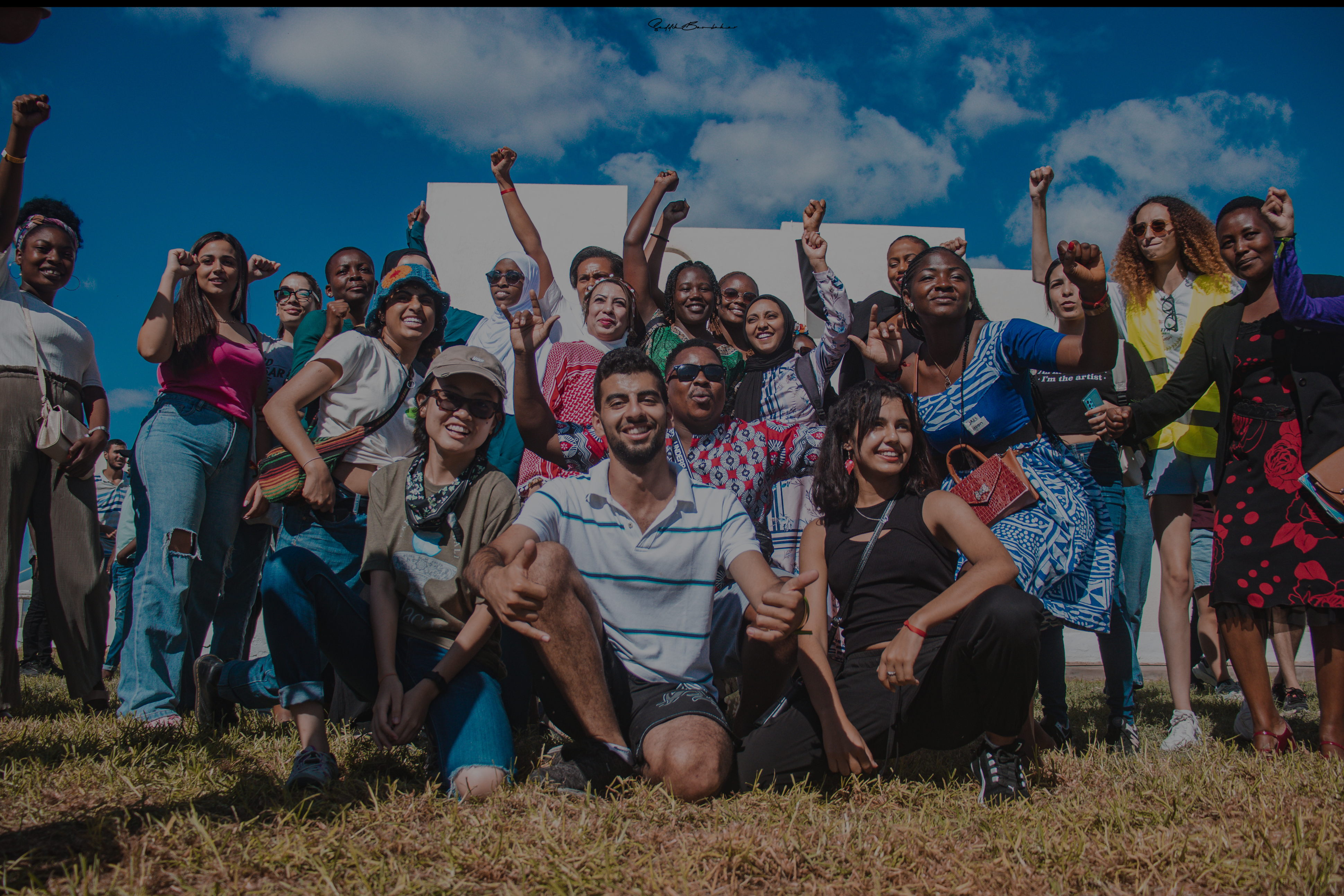
BY 2030, HOW WILL WE KNOW WE HAVE SUCCEEDED?
1. OUR WORK WITH DECISION-MAKERS
2. OUR PEOPLE POWER MOVEMENT
3. OUR RESEARCH
4. OUR FOCUS ON THE PACIFIC
5. OUR WORK ON HUMAN RIGHTS EDUCATION
6. OUR WORK WITH PARTNERS
7. OUR WORK WITH THE GLOBAL AMNESTY INTERNATIONAL MOVEMENT
8. OUR VALUES
9. OUR RESOURCES
10. OUR TOOLS
OUR HUMAN RIGHTS PRIORITIES
A: STRENGTHENING CIVIL SOCIETY
Strengthening civil society acknowledges that people power and movement building – empowering people passionate about human rights to take action – are the key to change. To achieve this, Amnesty International Aotearoa New Zealand will work towards:
1. Strengthening freedom of expression and association
2. Securing the right to peaceful assembly for all
Strengthening civil society is critical, both in our work in Aotearoa New Zealand and internationally. It is key to achieving the human rights priorities in B.
B: HUMAN RIGHTS PRIORITIES
By strengthening civil society, movements, people and communities will be better positioned to make an impact in the following human rights priorities:
1. Promoting gender, racial and intersectional justice
2. Strengthening enjoyment of the right to health
3. Securing climate justice
4. Protecting the rights of refugees and migrants and rights of people on the frontlines of crises

Amnesty International has a broad remit for human rights change. However, with an increasingly challenging global and local human rights landscape, Amnesty International Aotearoa New Zealand simply does not have the resources to work on every issue.
This means that we need to focus our time, effort and funding to where we can make the most impact.
Amnesty International Aotearoa New Zealand has identified the following human rights priorities where we believe our limited resources are best applied to address injustice. They are areas where: our movement can make a real difference; we have established that there is a need for our work; we have a meaningful role to play; the resources to do it well, or there is opportunity to increase capacity and/or capability over time to have an impact by 2030 and beyond.
These are the ‘lanes’ that Amnesty International Aotearoa New Zealand will move in. We will focus our work in these areas, but not necessarily in equal measure. They simply indicate the areas on which we will campaign, speak to media, conduct research, mobilise and challenge decision-makers. Our targeted, national or flagship campaigning areas may focus on one or more of these. Often Amnesty International Aotearoa New Zealand will take a lead role to effect change. Sometimes, however, it will be more appropriate for us to lend our knowledge, skills, research, scale and profile to support or partner with other organisations to enable wider change. A strong community, working collectively to make human rights change, is powerful. All our work within these human rights priorities will be balanced between addressing human rights needs in Aotearoa New Zealand and proactively contributing to global human rights work. In a constantly changing world, we will continue to review these human rights priorities at least two-yearly, or more regularly if required.
HUMAN RIGHTS PRIORITIES – WHAT DO THEY MEAN?
Strengthen Civil Society
Our overarching goal in Strategy 2030 is to strengthen civil society. A strong, united civil society has great power to make change. Everyone should feel safe, valued and able to participate in society without fear of harassment or violence.
Strengthening Freedom of Expression and Association
States and corporations have laws, policies and/or practices in place that uphold and protect freedoms of expression and association online and offline.
Securing the Right to Peaceful Assembly for All
States expand and protect people’s right to peaceful assembly online and offline.
Promoting Gender, Racial and Intersectional Justice
States have laws, policies and practices in place that advance equality and public participation for those otherwise subjected to multiple, intersecting forms of discrimination.
Strengthening Enjoyment of the Right to Health
States are taking concrete measures to uphold the right of everyone to health, without discrimination, as a key driver of equality.
Securing Climate Justice
States phase out, and require corporations to phase out, polluting and other environmentally unsustainable policies and practices that negatively impact people’s human rights.
Protecting the Rights of Refugees and Migrants and Rights of People on the Frontlines of Crises
States honour their shared responsibility to protect the rights of refugees, people seeking asylum, migrants, and people at the frontlines of conflict and crises.

COMMON LENSES
Common lenses are something that is so important to our movement and human rights work that we will consistently analyse, plan and evaluate our mahi through them.


One way to think about our human rights priorities is to see them as the contents of our kete, or basket, within which we carry our mahi.
The handle of the kete is our overarching goal to strengthen civil society
The kete represents our expertise, knowledge, insight, skills, networks and offerings in particular areas
The kete contains our mahi towards our human rights priorities. Woven throughout the harakeke (flax) are our five common lenses
The kete are carried by people, communities and movements passionate for human rights change
